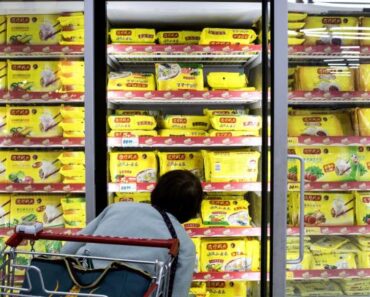This post was originally published on this site

MILAN/LONDON (Reuters) – UniCredit is urgently reviewing its Russian business and could decide on a costly exit of the country after its invasion of Ukraine, the Italian bank’s CEO said on Tuesday, as markets watch for a payment on Russian sovereign debt.
A growing list of financial firms are looking to exit Russia, with Deutsche Bank (DE:DBKGn), Goldman Sachs (NYSE:GS) and JPMorgan Chase (NYSE:JPM) winding down business there.
Unicredit (MI:CRDI) Chief Executive Andrea Orcel also said the economic environment had changed because of the Ukraine crisis and the bank was now assuming there would be stagflation – or a combination of low growth and high inflation.
Italy’s second-biggest bank last week said a full write-off of its Russian business, including cross-border exposure, would cost around 7.4 billion euros ($8.1 billion), leaving its plans to distribute capital to shareholders hanging by a thread.
UniCredit is one of Europe’s banks most exposed to Russia.
Its shares fell 3.2%, and an index of European banking stocks was down 1.8%.
Russia has $117 million in payments due on Wednesday on two dollar-denominated Eurobonds. Its finance ministry has said it will make the payments in roubles if sanctions prevent it from paying in dollars – a move markets would view as a default.
A default would add further pain to Russia’s economy and financial system, making it harder for Moscow to find new lending sources and raising future borrowing costs, a U.S. Treasury official said late on Monday.
The official told Reuters the Treasury believes there are limited direct exposures in the U.S. financial system to Russian sovereign bonds and the main impact would fall on a Russian economy already reeling under the weight of Western sanctions.
Russia is subject to stringent sanctions and has introduced countermeasures following the invasion of Ukraine, which it calls a “special operation.”
In a sign of the pressure, the Russian central bank said it would suspend the buying of gold from banks from Tuesday to meet increased demand for the precious metal from households.
Ukraine hopes to open nine corridors on Tuesday to evacuate civilians trapped by Russian forces and will try to deliver humanitarian supplies to the besieged port of Mariupol, said Deputy Prime Minister Iryna Vereshchuk.
Western governments continue to ratchet up the pressure.
The European Union has banned top credit rating firms from rating Russia’s sovereign debt and the country’s companies as part of its latest sanctions package, the European Commission said on Tuesday.
Britain said it had stopped all government-backed export finance to Russia and Belarus.
Private trade credit insurers are also holding back from providing cover for Russia and Ukraine, industry sources say, making exports to the countries more difficult.
Commercial insurance market Lloyd’s of London said it was looking to apply sanctions pressure on Russia through the cyber, aerospace and political risk insurance markets.
($1 = 0.9088 euros)




